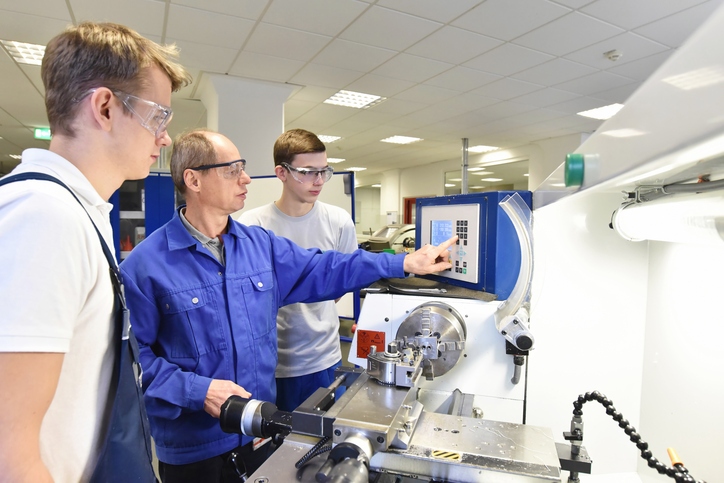The rapidly changing manufacturing landscape has several companies struggling to fill positions across the board. A recent report conducted by the American National Standards Institute found that many companies don’t have a consistent way of weighing the importance of credentials in the candidates they interview and eventually hire. This, paired with the increase in jobs that require specific training and the negative stigmas about manufacturing jobs, has the potential to lead to a large number of unfilled roles. To combat these issues, companies and organizations are looking towards education to bridge the gap.
The next generation of workers is primed to be one of the biggest on record, and introducing them to manufacturing early on is a great way to correct misconceptions about the field and spark career interests. Several existing events, such as Manufacturing Day, pull back the curtain to allow students onto the factory floor to see how things are made. STIHL, the power tool company, recently completed the seventh year of its STIHL Manufacturing Technology Summer Camp in collaboration with Dream It. Do It. to help promote manufacturing careers to high schoolers.
Some groups are incentivizing student interest in manufacturing. Leading2Lean, for example, will begin offering scholarships in Michigan and Washington to students intending to enroll in technical programs and technology-related fields of study. Community colleges in the suburban Chicago area, such as Oakton CC and Elgin CC, are partnering with organizations to offer manufacturing apprenticeships that close the skills gap manufacturer’s need while providing on-the-job training and classroom instruction.
By educating students at a younger age and providing more practical ways for the current workforce to better their educational credentials, manufacturing firms can fill these vacant positions more quickly and efficiently. The shifting manufacturing landscape means a shift needs to happen in how workers are trained, and hopefully these steps are just a few of the many to come. Has your firm partnered with an educational interest group to find qualified workers for your company? What do you think is most important to emphasize in manufacturing education? Share with us in the comments below.
